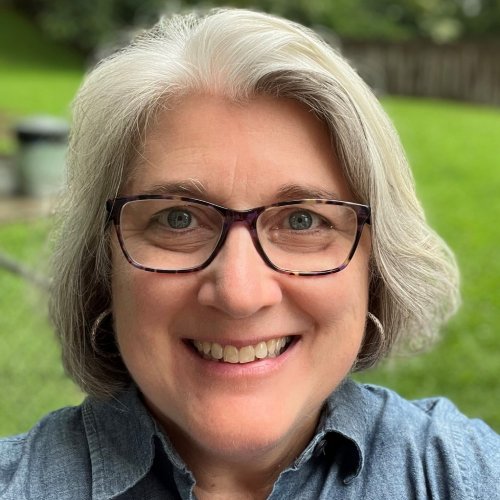BSBA students craft growth plan for foundation helping couples with IVF
- May 3, 2024
- By Suzanne Koziatek
- 4 minute read
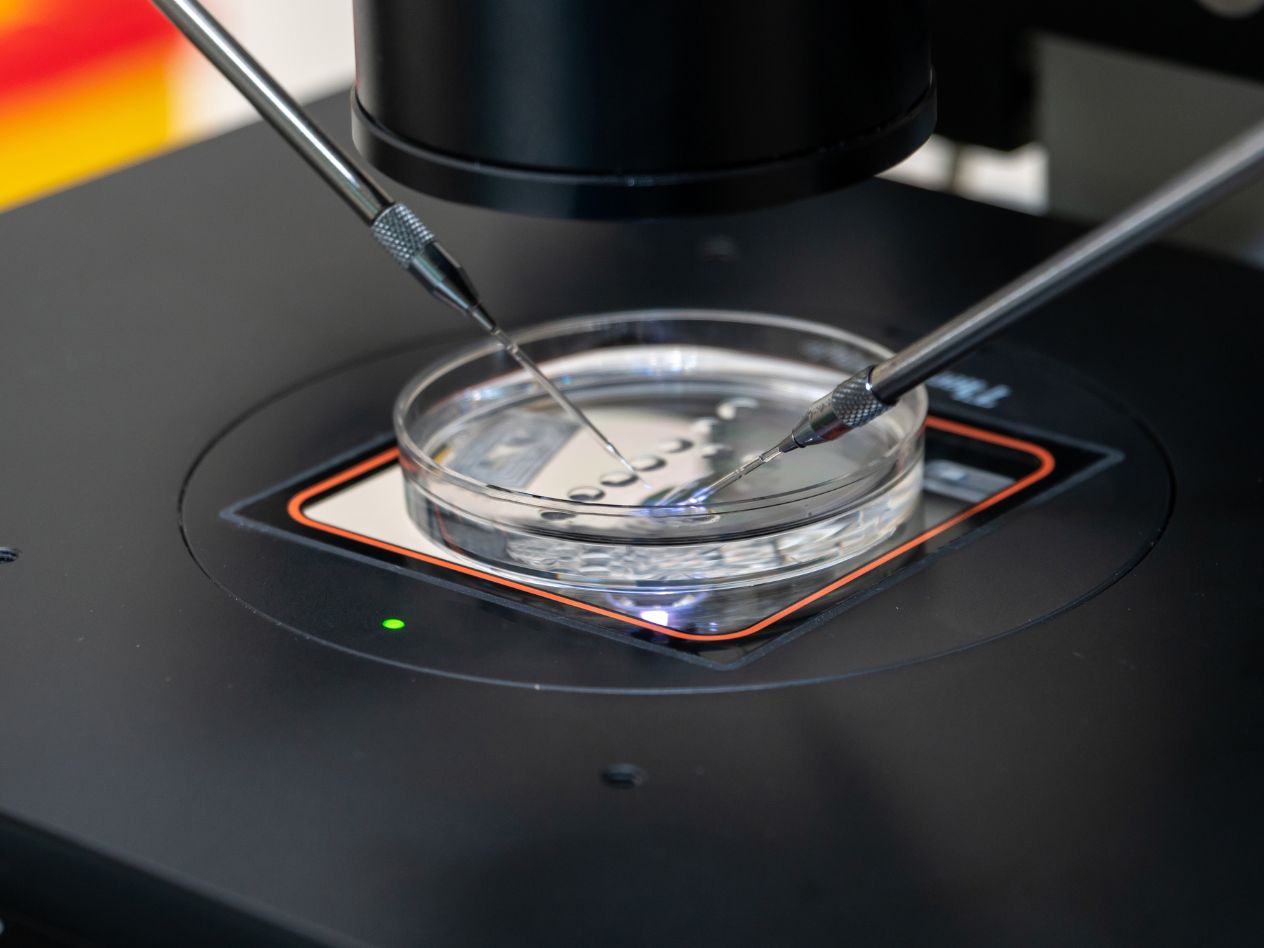
Olin’s experiential learning opportunities are a great two-way street: They introduce students to the types of business challenges they’ll face in their careers while providing valuable ideas and support to businesses experiencing those challenges.
Beth Frattura, EMBA 2016, has seen the value of those ideas as she’s worked with BSBA students in Glenn MacDonald’s Research in Industry Analysis classes. Frattura, who was named an Olin Emerging Leader in 2022, is first vice president and senior portfolio manager at Morgan Stanley. She also founded the Stork Foundation for Infertility, a nonprofit organization that helps families with the high cost of in vitro fertilization (IVF).
This spring, she challenged MacDonalds’ BSBA students to come up with ideas to grow the Stork Foundation. Expanding access to IVF has been her passion since she and her husband Todd used the procedure to become pregnant with their three children, whom she calls her “IVF miracles.”
“IVF can cost $15,000-$20,000 per cycle, and there is not a mandate for infertility insurance coverage,” Frattura said. “That’s a price tag that many people don’t have access to. I did have infertility insurance through Morgan Stanley, but I think it’s heartbreaking that anybody misses out on the opportunity to be a parent, and that was the inspiration for founding the organization.”
Assisting a busy board
Since 2020, the foundation has distributed $300,000 in grants and welcomed 12 “Stork Babies” whose IVF cycles were completely funded by donors. Frattura believes the organization could benefit from more structure and strategic thinking but has resource constraints.
“We have limited resources and no paid staff,” she said. “There’s a volunteer board of directors—11 people, but they all have full-time jobs.”
Working in teams, MacDonald’s students had a week to come up with recommendations for the Stork Foundation. MacDonald said he likes presenting these fast-paced challenges from small- and medium-sized organizations to his students.
“When I started doing this class, I was bringing in companies like Boeing and Citibank,” said MacDonald, the John M. Olin Distinguished Professor of Economics and Strategy. “But five students working for a week can’t do anything that (large companies) are going to use. With a smaller company, if they hear a good idea, they can just do it.”
He said winning entries tend to be creative and implementation-oriented. “I tell clients they should be selfish. Get us to solve a problem they really care about and let me take care of the student learning experience. Students understand that their work will be judged by its value to the client.”
The winning team for this challenge recommended a low-cost source of talent to assist the foundation: Interns, who are looking for experiential learning opportunities of their own.
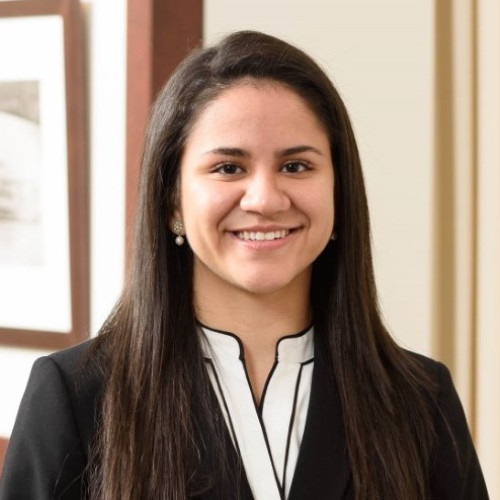
“The way we came to a solution was by reflecting on our own experiences working with smaller clients,” said team member Grace Di Bartolomeo, a finance/economics and strategy major.
Di Bartolomeo noted that when she worked with clients—particularly smaller local companies—she felt a personal attachment to their success. The team thought other interns might feel the same way about the Stork Foundation.
They pointed to three potential recruitment avenues for interns: Business students, pre-med students interested in reproductive health and campus organizations advocating for reproductive health equity.
“College students are not just passionate about reproductive health; they're pioneering advocates, driving conversations, and shaping the future of assisted reproductive technologies like IVF with their unwavering commitment to inclusivity, accessibility, and ethical considerations,” the students said in their presentation.
That enthusiasm could be a valuable asset at a time when IVF has come under increased scrutiny, such as the Alabama Supreme Court’s recent ruling that briefly shut down IVF treatment in the state.
Under the students’ proposal, the interns would help plan fundraisers, do media outreach and improve the foundation’s social media presence.
A detailed, actionable plan
Frattura was impressed with the team’s solution. She presented it to the foundation’s board and they’re moving forward with an internship program, working from the students’ outline.
She said the strength of the team’s solution was how much detail they provided about how to execute it.
“They went several layers deep into the action items needed to carry it out,” she said. “They don’t just say, ‘You should create an intern program.’”
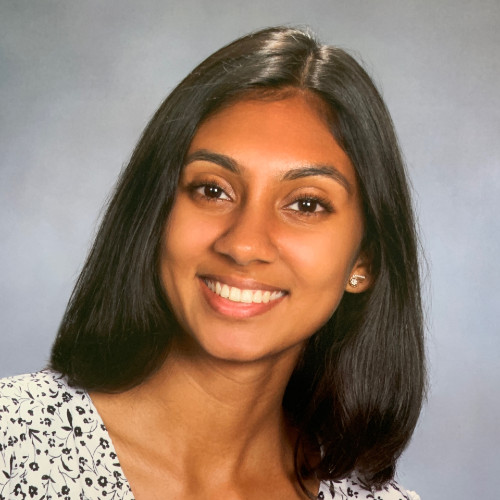
As an example, the team noted that students typically must log about 100 hours of volunteer work to be accepted to medical school. “That’s another opportunity for students to possibly be more willing to engage in something like this,” Frattura said.
For their part, MacDonald’s students said they were excited to work on a consulting project that could make a difference for the foundation.
“The Stork Foundation is doing really amazing work, and we want to help it grow,” said Aashna Parameshwar, an economics and strategy major.
Just thinking about what we came up with in a week, how much could potential interns do in an entire semester?
Aashna Parameshwar
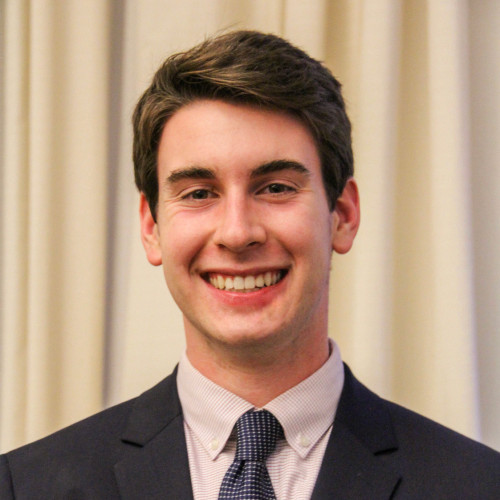
The team members, all of whom graduate this spring, have worked together on projects throughout the year. They formed their team before the class even started, said Ben Sorota, a finance/economics and strategy major.
“We know each other very well,” Sorota said. “We know each other’s working style, we’re all comfortable with constructive criticism. I think it’s why our team has been very successful in how we operate.”
Media inquiries
For assistance with media inquiries and to find faculty experts, please contact Washington University Marketing & Communications.
Monday–Friday, 8:30 to 5 p.m.
Sara Savat
Senior News Director, Business and Social Sciences
